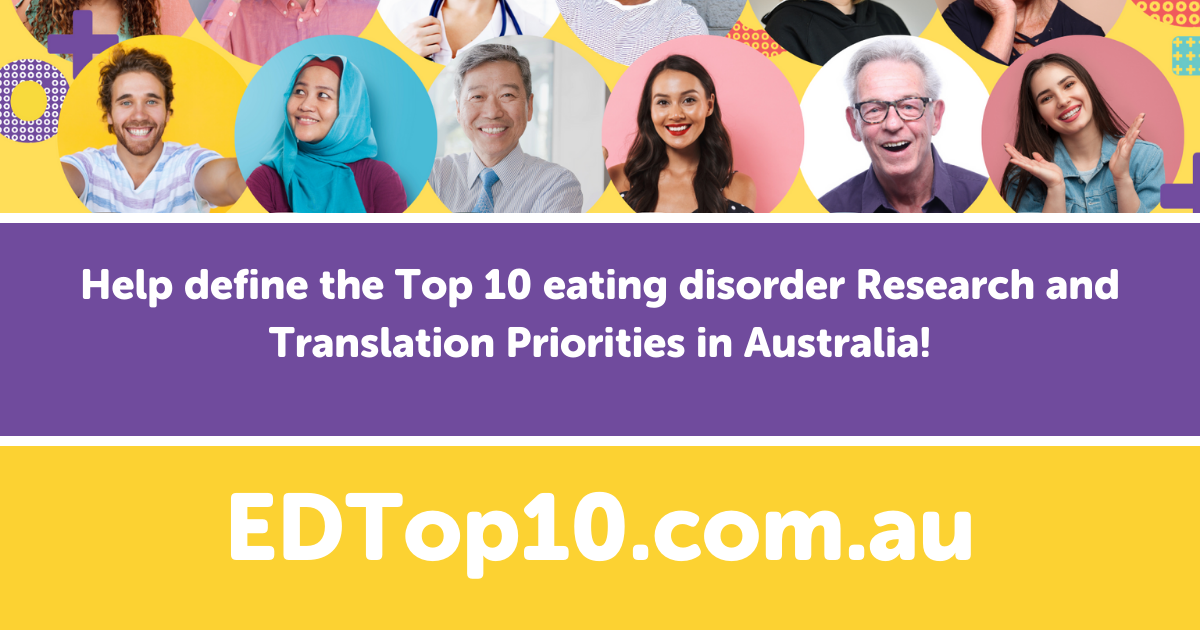Ever wondered how it is we know what we know? The answer is research! But how do researchers decide what to study? In a three part series, InsideOut eating disorder researcher Dr Phillip Aouad answers these key questions and outlines the breakthroughs which he considers have had the biggest impact on treatment.
What do you think about when you hear the word research? People in white lab coats? Microscopes? Maybe glass vials of multicoloured liquids?
Until research makes news headlines it can feel really far removed from our everyday lives, but it can impact us more than you may think.
For one, research forms part of our knowledge and understanding of the world. Historical research is probably responsible for what you know about the world around you, for example what you learn from school about maths, science, history – all of it is based on a foundation of asking questions and testing ideas on a very specific topic or area.
Once we understand a bit about one specific topic, we build on it to help us understand even more.
Improving our 'collective understanding' of the world
For more info on how research builds on itself, and to understand how future research is shaped, see this paper (spoiler: it requires reviewing lots of scientific literature!).
To improve our collective understanding of the world, research needs to build on itself in order to help us understand the big picture and the small details – including how we respond to various illnesses and issues.
Specifically, when it comes to health-related issues (both physical and mental), research is also essential to find out which treatments work better for a larger proportion of patients.
Research plays an important role in discovering new treatments and making sure that we use existing treatments in the best ways possible.
Research into the most effective treatments is particularly important to the field of eating disorders, where we need to constantly keep up to date about what works best for different disorders.
How do researchers decide what to study?
One way researchers choose what to study is to find a problem and try to fix it: Put simply, a problem is identified and then researchers try to find a solution for it.
But how do you identify a problem (or a gap in our knowledge of a subject)? Like with all things research, there are so many different thoughts, opinions, and ways to approach problem identification (and their solutions).
One way is to re-examine existing solutions to problems by, for example, putting existing treatments (or ideas) to the test (again) to make sure they are in fact doing the best possible job for the condition they were developed to treat in the first place.
Another way is that someone else finds a problem and researchers try to fix it for them:
For example, funding bodies will have identified a host of issues they are looking to solve and have particular research priorities they consider important.
The funding body will put out a grant with a detailed explanation of the problem, researchers will then think/plan a solution that may solve the problem (or address the issue) and will put their ideas forward for consideration by the funding body.
The funding body will examine these ideas closely and may choose to fund a number of researchers to develop and implement their solutions.
Increasingly, what researchers choose to investigate is determined by how much it impacts people's lives and there are ways that people who aren’t in research can have their say about what they think should be researched (within reason, of course!).

Determining the future of Australian eating disorder research
You can help influence what eating disorder researchers focuses on!
InsideOut Institute is currently leading a project to identify the Top 10 eating disorders research and translation priorities in Australia, decided collectively by people who have a lived experience of an eating disorder, their family and carers, clinicians and researchers.
Now more than ever we need your help in setting out the roadmap that Australia will use for the next 10 years to drive eating disorder research forward and help us determine what problems need solutions.
You can find out more, or take the 10 minute priority setting survey, at EDTop10.com.au
